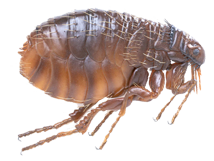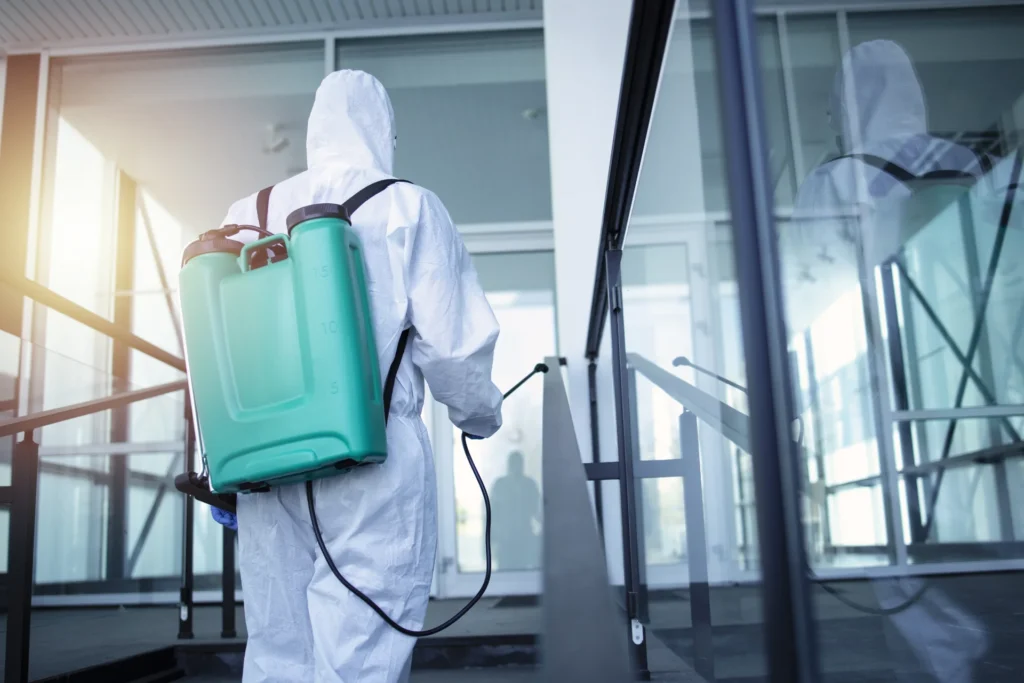
Cat flea, Ctenocephalides felis felis
The Key Features of Fleas
In length, fleas range from 1-3mm and are brown. With compressed bodies, they can swiftly make their way through the fur with little to no difficulty, and their legs are adapted to allow them to jump as high as 16cm.
This pest’s eggs are white and only 0.5mm in length. Once the larva has hatched, maggots will emerge, and, throughout their lifespan, grow, gradually turning cream in colour.
Biology
Following a single blood meal, a female flea will lay more than one hundred eggs in cat fur, and any area where this pet may be found. The eggs will fall off after a couple of weeks and hatch; the larvae will then be found in places like animal beds and carpets.
Then, the larva will fashion a cocoon in which to mature and, up to two weeks after, adult fleas will emerge. Though fleas can survive as long as one year without feasting, they will not be able to reproduce if they do not have access to blood meals.
Also, humans can be bitten by this pest, but they will not reproduce with this host.
Dangers of Flea Infestation
This pest can carry and pass on diseases, as well as parasitic worms. For example, dog and cat fleas play host to dog tapeworm, and this can be passed to humans too. Though the UK isn’t famous for diseases transmitted via fleas, they do bite and leave behind red, irritated spots on the skin.
How They Live
Larvae survive in dark locations with high humidity, which includes pet bedding and carpets. In total, larvae will become adults within four weeks of hatching though this may vary depending on environmental factors. Typically speaking, they will stay a pupa during the cold winter months and will only emerge if they sense the movement of a possible host.
Practical Flea Advice
If you live in London and you’ve invested in flea pest control, please see the below guidelines for preparing the property for treatment:
- Make sure there are no small items on the floor
- Vacuum clean the entire house before disposing safely of the bag
- Keep in mind that during treatment, all carpets will be sprayed, and you must vacate the property for a minimum of four hours (this includes pets)
- Following flea control treatment, avoid vacuum cleaning the property for at least two weeks
Below we have compiled some general advice too:
- Invest in a flea collar for your pet
- Thoroughly check your pet for any signs of fleas, as well as brushing them down with a specialist comb and treating them with a suitable, approved product
- Stick to best hygiene practices
- Regularly treat your pet’s bedding
Or, if you need to speak to an expert about flea control for your London home, get in touch today. We’d be happy to help.



